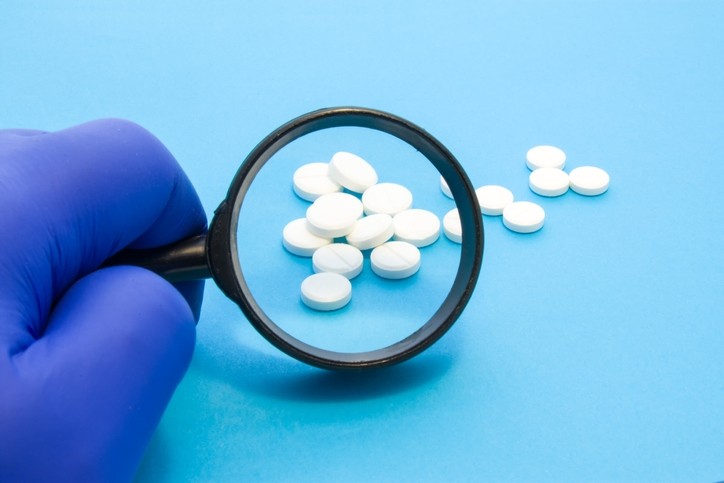Low potency products still the norm on Amazon, NOW finds in CoQ10, quercetin tests

NOW, based in Bloomingdale, IL, released the more recent round of test results on Friday. The company began the testing program several years ago after becoming aware of how few supplement brands sold on Amazon met minimum quality standards. The program has been recognized by several industry awards, including NutraIngredients-USA’s Industry Initiative of the Year in 2021.
In the most recent round of testing NOW retested eight CoQ10 brands sold on Amazon that were previously examined in 2020. The company found that quality problems persisted for seven of the eight brands. In addition, the company noticed a new labeling discrepancy that had not been observed before.
New trick: Potency juggling
The new practice involved adding a ‘potency’ callout to a milligram total for the CoQ10 ingredient line on the label. For example, four brands used the same product name on the label: ‘CoQ10 400 mg Max Strength.’ On the back, however, the ingredient itself is listed as ‘400 mg/6% potency.’ NOW pointed out that this means the consumer is only getting 24 mg of CoQ10, which is less than half of the lowest clinically studied dose. Dosages of up to 1,200 mg/day have been employed in clinical studies.
Dan Richard, NOW’s vice president of global sales and marketing and the executive who has led the testing initiative, said this kind of bait and switch tactics on labels is something NOW had not observed before.
“The ‘percent activity’ labeling trick is something new within the past year, it seems. It does feel like this “trick” is in response to NOW’s prior reports, because most of the same brands were reported previously as failing potency badly. As noted in our report, three out of four brands that label CoQ10 as “Coenzyme Q-10 (yielding 6% Ubiquinone-10)” failed prior testing by NOW for potency. Someone who created these labels knows enough about labeling laws to try this deception, with the expectation to defend itself from future negative reports. We hope FDA looks at these labels and takes action against this type of mislabeling,” Richard said.
Only one CoQ10 product met label claim
NOW tested eight brands in the latest round. NOW’s protocol involves testing in NOW’s own state of the art facility as well as matching tests done by Eurofins. Only one product met label claim. The rest all had 30% or less of the amount of CoQ10 on the label. In addition, three brands, Clear Formulas, Healthy Way, and Sundhed, claimed to be using vegetarian capsules when testing clearly revealed that gelatin caps were used.
Quercetin testing finds 85% of brands understrength
In this latest go round NOW also chose to add quercetin supplements to its testing regime. The reason the company gave is that quercetin sales and prices have jumped during the pandemic. In the past when that happens for a given ingredient category , the risk of adulteration and cheating has risen, too.
NOW tested 23 different brands claiming quercetin content on the labels and found that only three met label claim for potency. Six brands had from 67% to 88% of the claimed amount of the ingredient and the rest were at 44% or below. One brand had no detectable amount of CoQ10.
Richard said NOW has made it a practice to contact Amazon with its findings, something it has done since 2017 when the testing program began. The online retailing giant has never responded directly. But it did institute a new set of requirements for the sellers on supplements on its site. Whether this was done in response to NOW’s input is something the company has never acknowledged.
Does the Amazon quality program have teeth?
Richard said that might have been a welcome change, but the question remains whether it has made any difference.
“Amazon’s new ISO17025 regulations are a significant step in the right direction. But cheaters have a way of staying one step ahead of the law and these little-known vitamin brands can do this until they get caught. It would not be hard for dishonest brand owners to find a way around Amazon’s new quality rules. I would ask Amazon to look at the 20 failing brands of Quercetin that NOW found, and do a paper trail to see how these products are still being sold on Amazon. The same applies to NOW’s previous reports in 2020 and 2021, which seem to result in no actions taken against the failing brands. It also appears that Amazon’s quality program needs more teeth and transparency. NOW has never received any feedback from Amazon from our previous quality reports,” Richard said.
“When brands sell supplements that are essential for health, it’s crucial that product quality matches label claims. Accepting anything less would be to agree that ‘buyer beware’ is enough of a warning. None of us as consumers believe that cheating quality is OK on such a widespread platform as Amazon. I’m sure Amazon doesn’t want low quality products sold on its site that intentionally mislead and cheat consumers either. My expectation is that Amazon will take action to stop selling bogus products when shown legitimate and repeated failing third-party assays,” he added.
Amazon did not respond to a request for comment in time for publication.









